Journey Through Colombia
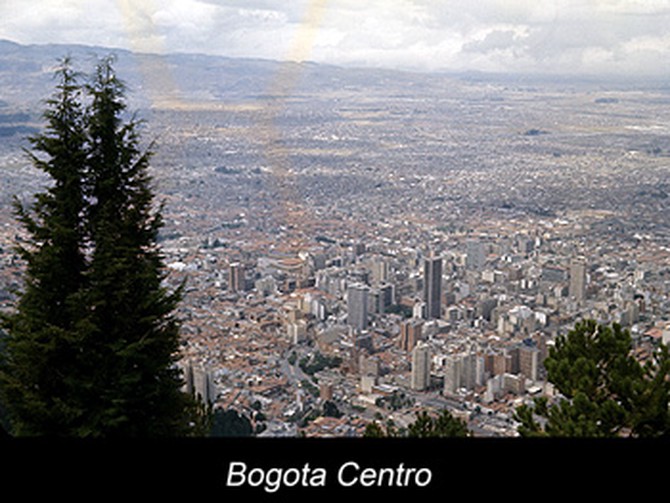
A panoramic view of Bogotá, the capital city of Colombia, from the nearby Andes; today it is home to some 8 million people and lies at 8,600 feet above sea level. Its climate is cool and pleasant.
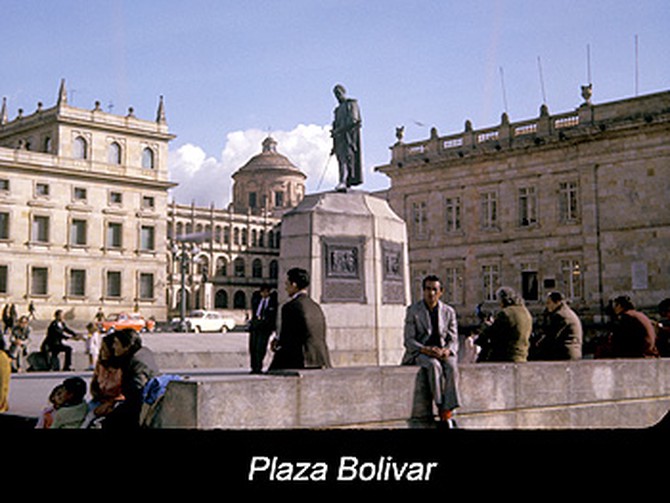
Heart of the capital and congressional center of the nation, it is named after the great liberator of the national regions of South America, Simón Bolívar, who lived from 1783 to 1830.
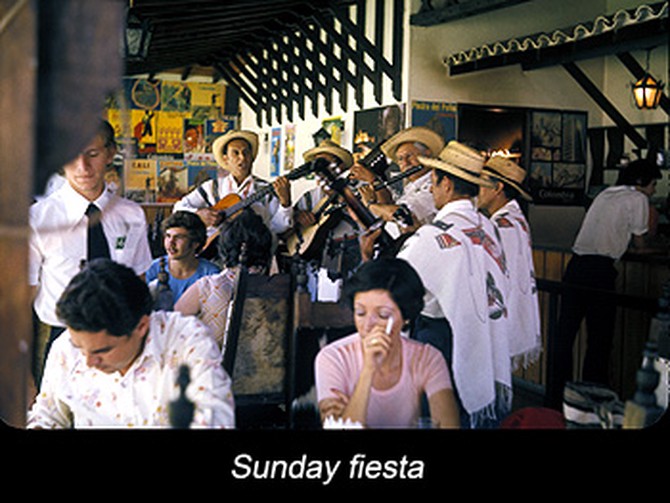
Rural club near Medellín, Colombia's second largest city, on a lazy Sunday afternoon.
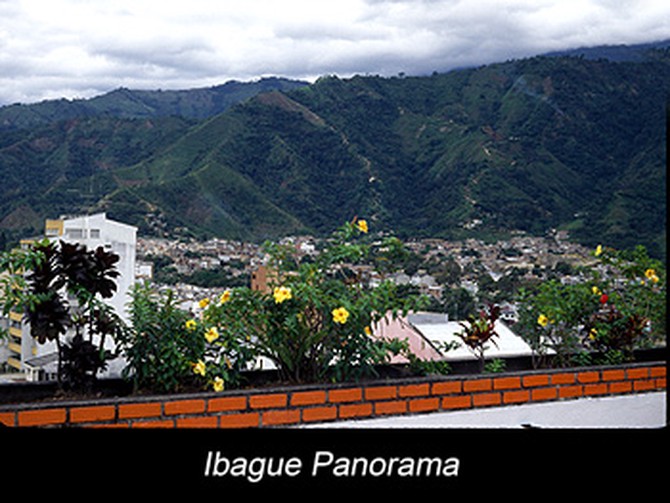
Panorama of Ibagué, a tropical city in central Colombia nested between two sierras of the Andes.
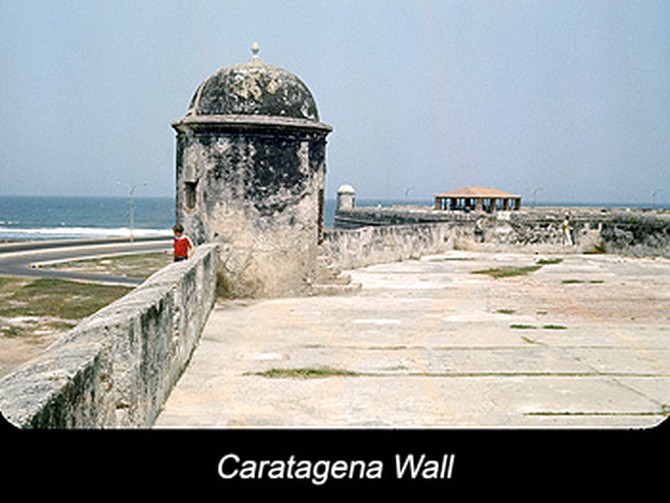
Author Gabriel García Márquez began his career as a writer and journalist in the coastal cities of Cartagena and Barranquilla. It was here that he and friends began to read, among others, the works of William Faulkner .
This huge wall around the old city of Cartagena was a structure built to protect such treasures as gold and emeralds from pirates and privateers. Sir Francis Drake, a famous British voyager during the reign of Queen Elizabeth, ransacked the city in 1686 after the fortresses were enlarged and strengthened.
This huge wall around the old city of Cartagena was a structure built to protect such treasures as gold and emeralds from pirates and privateers. Sir Francis Drake, a famous British voyager during the reign of Queen Elizabeth, ransacked the city in 1686 after the fortresses were enlarged and strengthened.
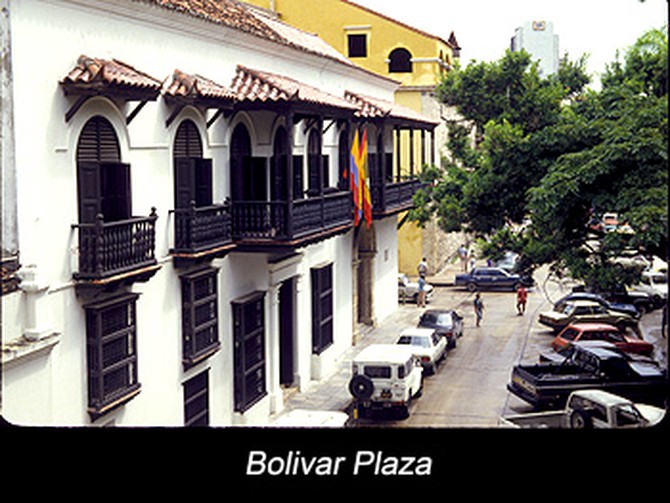
The heart of the city of Cartagena, surrounded by the Palace of the Inquisition, the Cathedral, and the Gold Museum.
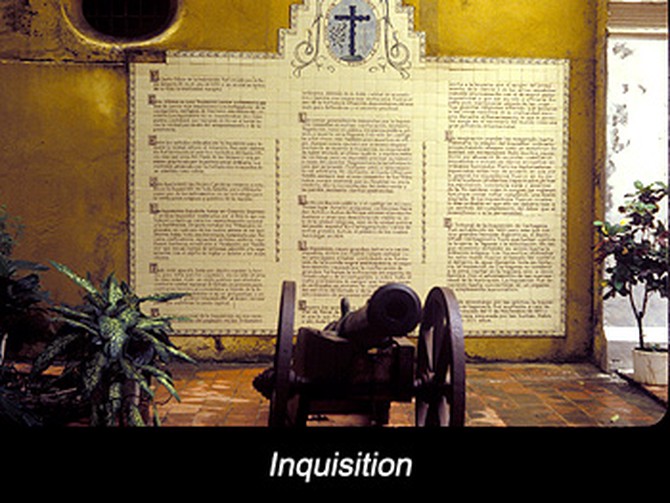
One of only three centers in the New World where the Spanish Inquisition was enforced, Cartegena is filled with history and documentation.
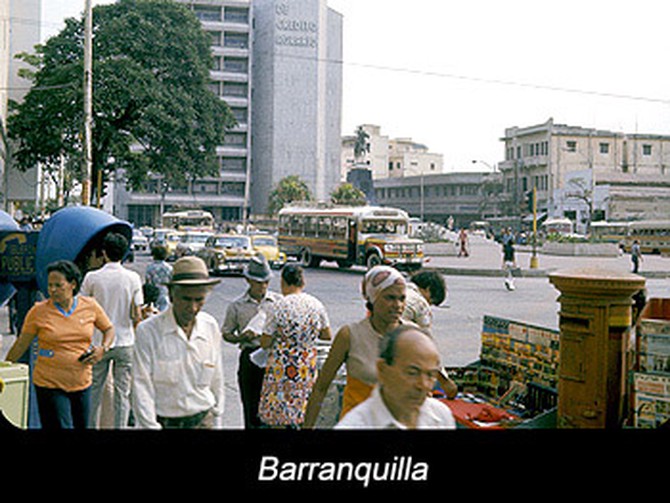
A bustling port city not far from Cartagena, García Márquez moved to Barranquilla to focus on his fiction and journalism.
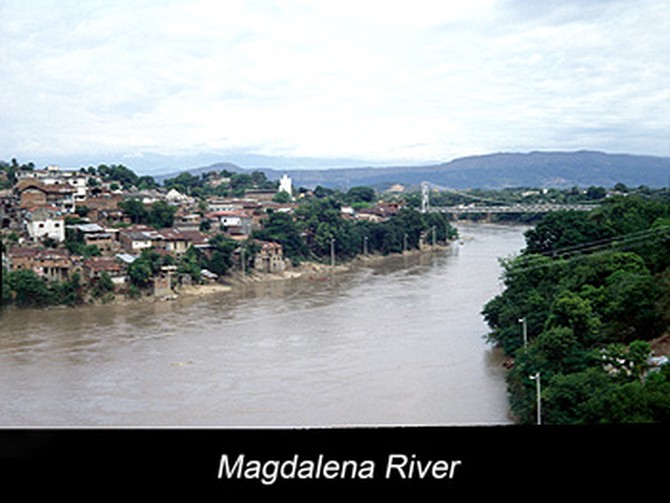
The Magdalena River rises in the Andes mountains and flows North 957 miles to the Caribbean coast of Colombia. For centuries, it was the principle route to the interior of the country. Gabriel García Márquez used it to travel to the capital region from the small town of Aracataca when he began his secondary education.
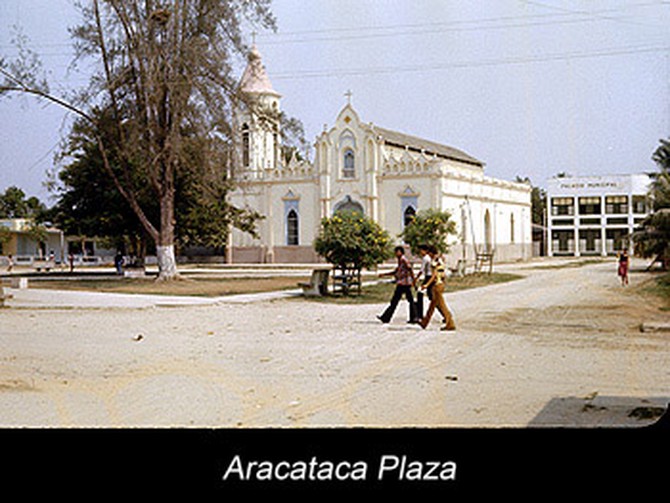
Often described in One Hundred Years of Solitude, this is the central plaza of the town Macondo was modeled after. The central church and city hall are visible in the distance.
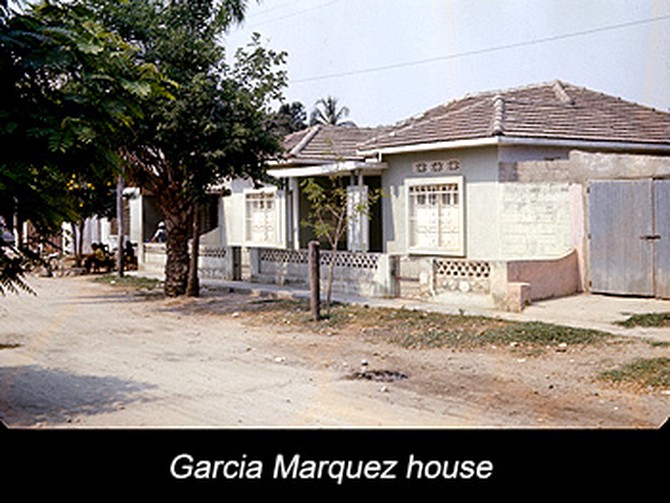
The home of the author's grandparents, where he spent the first eight years of his life in a bustling environment with suspicious aunts and an exceptional grandmother. This house is the model for the Buendía residence, the central setting for much of One Hundred Years of Solitude.
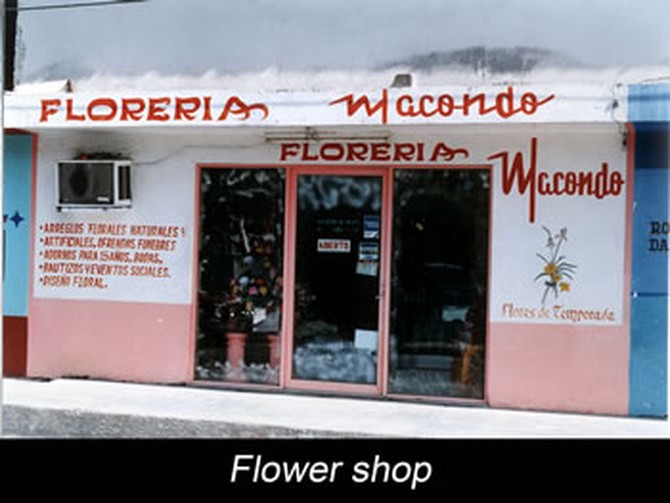
This flower shop in northeastern Colombia is named after the town in One Hundred Years of Solitude. This is a good example of how pervasive and popular the novel and its author are throughout Colombia.
Published 01/01/2006

